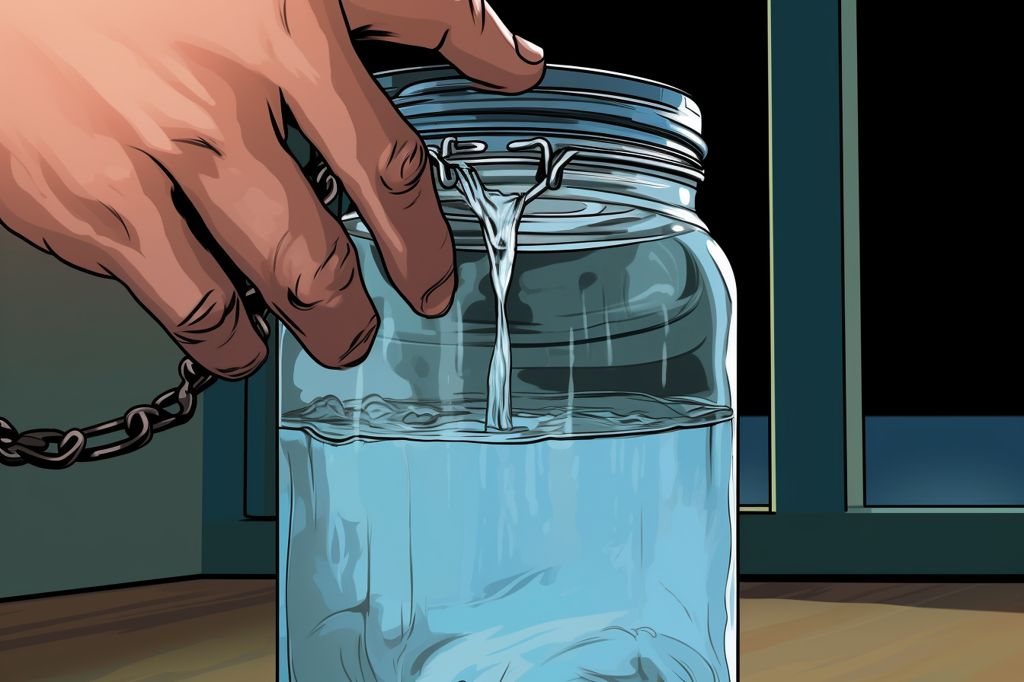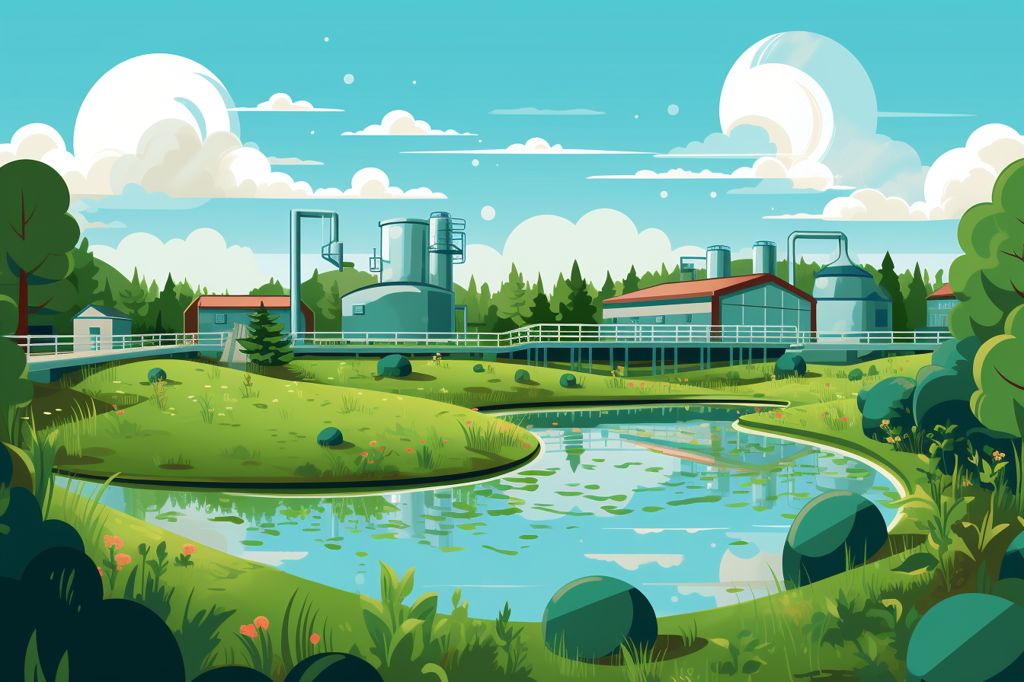The City of Cape Town has confirmed the presence of discolored water in the northern suburbs due to the effects of a severe storm on the water quality at the Wemmershoek Dam. Despite being treated, the water’s turbidity count exceeds the aesthetic standard limit for drinking water. The City is closely observing the highly turbid water and carrying out extensive water sampling and continuous testing to ensure the safety and quality of drinking water in the affected areas. The incident highlights the need for robust infrastructure and contingency plans to respond to emergencies and maintain the quality of essential services like clean water supply.
Tackling Discoloration in the Northern Suburbs’ Water Supply
The City of Cape Town has recently confirmed the presence of discolored water in the distribution system of the northern suburbs. This issue can be traced back to the effects of a severe storm on the water quality at the Wemmershoek Dam. Although the water is discolored, the City ensures residents that it is still safe to drink and is taking appropriate measures to guarantee its quality and safety.
The areas affected by discolored water from the Wemmershoek Water Treatment Plant (WTP) include Kraaifontein, Joostenbergvlakte, Wallacedene, Scottsdene, Bracken Heights, Bonnie Brae, Vredekloof, North Pine, and Morgenster Hoogte. The storm caused turbulence in the dam, subsequently impacting the water quality flowing into the Wemmershoek WTP. Despite being treated, the water’s turbidity count exceeds the aesthetic standard limit stated in the South African National Standard for drinking water (SANS 241:2015).
To tackle this issue, the City is closely observing the highly turbid water released into the bulk water network from Wemmershoek. Additionally, the water treatment process at the Wemmershoek WTP has stabilized due to a changeover to the Riviersonderend water supply. This switch has also aided in reducing the impact on the affected areas by blending water from other parts of the bulk water network.
Ensuring Safety and Quality of Drinking Water
Understanding the significance of safe drinking water, the City is carrying out extensive water sampling and continuous testing to make sure that the water quality remains within the acceptable limits outlined by the SANS (241:2015). With these initiatives in place, the water quality in the area is expected to return to normal in the coming days.
As the City diligently works to rectify the problem, they have also expressed their apologies for any inconvenience this situation may have caused residents. Their commitment to providing safe and clean drinking water remains a top priority, and they are taking all necessary actions to accomplish this objective.
Moreover, the City’s response to the discolored water issue showcases its dedication to transparency and open communication with the public. By promptly informing residents of the problem and reassuring them about the water’s safety, they have demonstrated a strong commitment to ensuring the well-being of their citizens.
Addressing Challenges and Preparing for Future Incidents
On a larger scale, this incident highlights the difficulties that can arise from extreme weather events and their potential impact on public utilities. Such occurrences emphasize the need for robust infrastructure and contingency plans to respond to emergencies and maintain the quality of essential services like clean water supply.
In conclusion, the efforts undertaken by the City of Cape Town to address the discolored water issue and ensure the safety of drinking water in the affected areas are praiseworthy. By keeping residents informed and working diligently to resolve the problem, the City has shown its commitment to protecting the well-being of its citizens. As we continue to face the unpredictable challenges posed by changing weather patterns and their effect on essential services, it is crucial to learn from these instances and integrate these experiences into future planning and infrastructure design.
1. What caused the discolored water in northern Cape Town?
The discolored water in northern Cape Town was caused by the effects of a severe storm on the water quality at the Wemmershoek Dam.
2. Is it safe to drink the discolored water in the affected areas?
Although the water is discolored, the City ensures residents that it is still safe to drink.
3. Which areas are affected by the discolored water from the Wemmershoek Water Treatment Plant?
The areas affected by discolored water from the Wemmershoek Water Treatment Plant include Kraaifontein, Joostenbergvlakte, Wallacedene, Scottsdene, Bracken Heights, Bonnie Brae, Vredekloof, North Pine, and Morgenster Hoogte.
4. Why does the water treatment process at the Wemmershoek Water Treatment Plant need to be stabilized?
The water treatment process at the Wemmershoek Water Treatment Plant needs to be stabilized due to the changeover to the Riviersonderend water supply to reduce the impact on the affected areas by blending water from other parts of the bulk water network.
5. How is the City ensuring the safety and quality of drinking water in the affected areas?
The City is carrying out extensive water sampling and continuous testing to make sure that the water quality remains within the acceptable limits outlined by the South African National Standard for drinking water.
6. When is the water quality in the area expected to return to normal?
With the initiatives in place, the water quality in the area is expected to return to normal in the coming days.
7. What is the City’s response to the discolored water issue?
The City’s response to the discolored water issue showcases its dedication to transparency and open communication with the public. By promptly informing residents of the problem and reassuring them about the water’s safety, they have demonstrated a strong commitment to ensuring the well-being of their citizens.
8. What does this incident highlight the need for?
This incident highlights the need for robust infrastructure and contingency plans to respond to emergencies and maintain the quality of essential services like clean water supply.








